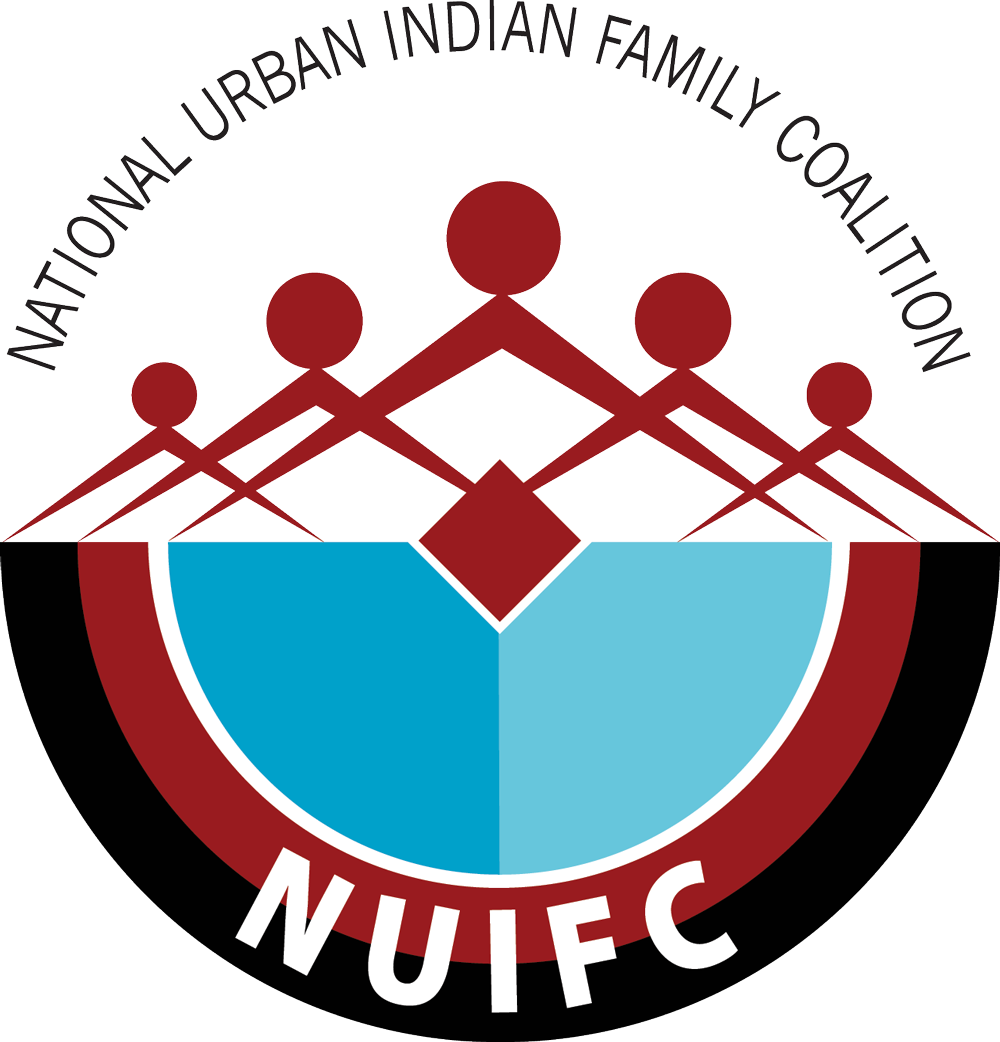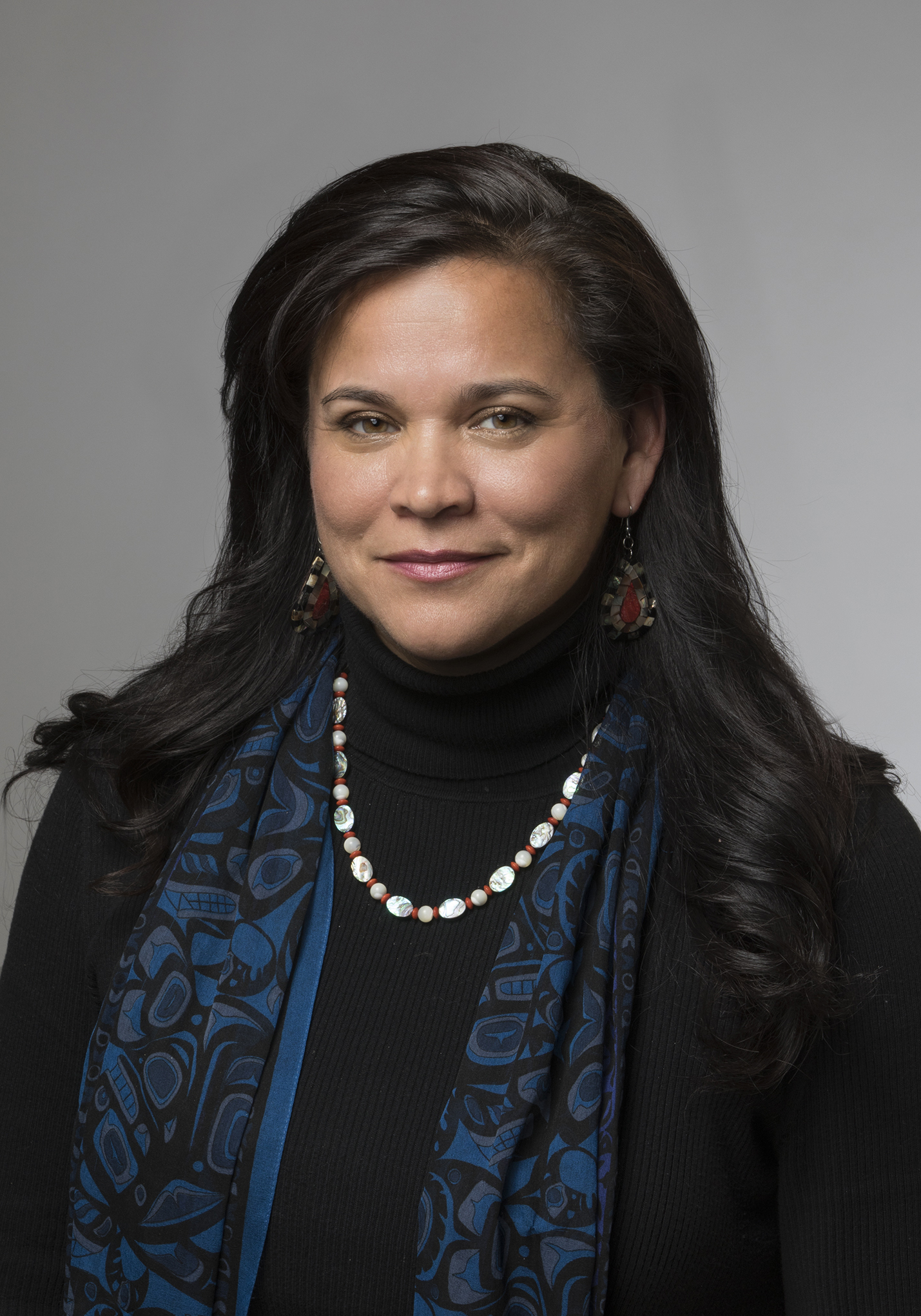NUIFC eNewsletter // April 2019
Update from the NUIFC Executive Director
Janeen Comenote, Executive Director
National Urban Indian Family Coalition
Looking Back at 2018: The Urban Native Vote & Indigenous Education
As we look back on 2018 and have had time to digest all that happened during a critical time in our nation’s history, the National Urban Indian Family Coalition (NUIFC) has a lot to be proud of. In October 2018, we launched the Urban Indian Voter Engagement project aimed directly at getting out the urban Native vote. We have a full breakdown of the program in the next section of the newsletter, so I won’t spill too much ink on it on here, besides to say how unbelievably proud I am of all our Indian organizations. What they pulled off in such a short amount of time is nothing less than a miracle!
2018 also saw us launch our new Resurgence School project. These schools are comprehensive summer programs for urban American Indian and Alaska Native youth that incorporates seven culturally contextualized primary domains of learning, that include social, emotional, intellectual and academic goals. In the summer of 2018, two NUIFC member centers launched their respective NUIFC funded Resurgence Schools with great success.
American Indian OIC – Takoda Prep, Minneapolis MN: Takoda Prep ran a 7-week program that centered on projects centered thematically on the notions of healing, healthy living, and the restoration of the mind, body, spirit, and the land upon which students pursue their studies. It aims on helping the students reclaim the health, happiness, and growth of the both the students, school, and land upon which the learning occurs. They planted an Indigenous garden and restored previously unused land with a cleanup and mural project.
Native American Youth & Family Center (NAYA) – Early College Academy, Portland, OR: The Native American Youth & Family Center (NAYA) ran a 5-week program that centered on concepts of Indigenous ecological education and climate change. Over four weeks, students engaged in scientific, cultural, and environmental activities in the Pacific Northwest. They performed soil and water analysis, macroinvertebrate surveys, a medicinal plant walk, and field trips to Silver Falls, the Bull Run Watershed, and Breitenbush Campground. This program also provided high school credit for the student’s hard work.
A Forward Vision – 2020 and Beyond
As we approach 2020, we must critically think of the impact we want to leave on our local communities, and our nation as a whole. When thinking ahead, the NUIFC is focused on increasing funding to build education, infrastructure, and outreach capacity for:
The 2020 Census: Local participation by urban American Indian organizations is critical to ensure that our population is adequately counted. Undercounting of our populations has real world consequences, manifesting itself in the form of unjust policy and the drawing of unrepresentative districts. In the last Census, American Indian and Alaska Natives reflected a 4.8% undercount, nearly triple the amount of all other race undercounts. Procuring strategies and resources for the urban AI/AN population to engage with Census is of paramount importance.
2020 Presidential Election: The coming presidential election is possibly the most important election of our lifetimes. Ensuring that our urban Native citizens have a voice and a vote will ensure that we have a say in policy discussion. This means having adequate time to be educated and engaged in the electoral process. The NUIFC has currently procured funding from multiple sources to distribute to urban Indian centers nationally to engage in Integrated Voter Engagement and GOTV activities leading up to the 2020 election.
2019 Resurgence Schools: This summer, Takoda Prep and the NAYA Early College Academy will again launch their Resurgence Schools. These summer schools will refine the lessons learned in 2018 while expanding with exciting new projects. Starting in 2019, the NUIFC, in partnership with Northwestern University in Chicago and the Spencer Foundation, will launch the design of a longitudinal research project using the Resurgence Schools as the foundation.
2019 Resurgence Gathering: In 2019, the NUIFC will host the first ever “Resurgence Gathering” - Urban American Indian Schools Network Annual Gathering of Practitioners. The Resurgence Gathering will bring together and build a learning and expert cohort of urban specific American Indian/Alaska Native alternative schools, practitioners, and urban educational administrators. Together, we will move forward on shared agenda, exchange best practices, engage in continuing education training and design research specific to the ongoing support and development of future Indigenous, alternative schools.
The NUIFC is dedicated to building awareness and power for urban dwelling Native constituencies and organizations nationally, as such, we will continue to advocate for the investment into these communities because they know what's best for their community. We’re thrilled at what we have in the works and are inspired about how bright the future is.
Klecko Klecko (Thank you),
Janeen Comenote
2018 Urban Native Vote Summary
Representatives from grantee organizations convened in January to discuss the NUIFC Native Vote Initiative
In an absolutely pivotal 2018 midterm elections, the National Urban Indian Family Coalition (NUIFC) undertook the National Urban Indian Voter Engagement Initiative, an unprecedented civic outreach project. Nearly half a million dollars were allocated to 17 Urban Indian organizations across 15 states to increase voter turnout and amplify those communities political voice. The results from this initiative were overwhelmingly positive, highlighted by the historic victories of Deb Haaland and Sharice Davids in congress, Peggy Flanagan as the first American Indian ever elected to statewide executive office, and Ruth Buffalo defeating the architect of anti-Native voter suppression legislation while becoming the first Native American Democratic woman elected to the North Dakota Legislature.
The headline grabbing victories above are fantastic but arguably the most inspiring aspects of the initiative come from the underlying numbers and personal anecdotes coming from the work on the ground. They paint a picture of a sleeping giant, a community that is a hungry to be activated and is only having the surface of its potential scratched. Over the six-week program, our partner organizations connected with 70,000 individuals at different events, engaged with 6.8 million people across social media channels, hosted 10 candidate forums along with ballot parties, voter registration drives, cultural events, and election day celebrations. Some of the biggest success stories included the Little Earth of United Tribes in Minneapolis, which had over 50 percent of its residents vote, a massive jump from average mid-term voter turnout results of under 20 percent. They also empowered an 87-year old man who had never voted before to cast a ballot for the first time. In Oklahoma, the Oklahoma City Indian Clinic hosted a GOTV event with partner organizations that over 20,000 people attended. This work led to a historically GOP district being broken and taken by a Democrat for the first time in four decades.
While the success of the initiative is evident, we’d be remiss to not examine the results and collect feedback about how to improve on our record-breaking results. This was the first time in known history that a significant amount of funding was dedicated solely to urban American Indian voter engagement, which led to a very steep learning curve. Add this learning curve to a short six-week window and you get the overarching sentiment that there was a lack of time to plan for deeper community engagement. We aim to fix this next time by getting started much sooner and providing our partners with more information about rules and regulations around what they can and can’t do, more instruction on using the VAN databases for more targeted voter outreach, a more robust structure to record and report data, and more resources to connect with other outside groups to create stronger events.
The initiative’s work was sorely needed, as Urban Indians make up more than 65 percent of the total American Indian and Alaska Native (AI/AN) population in the U.S. but are often not included or engaged in “get out of vote” and traditional civic engagement programs. This leads to Urban Indians being one of the most invisibilized populations in the country, with that lack of representation manifesting itself in extreme disparities across all the major sectors of life and community for tribal citizens living in cities including: children and family services, education, housing and homelessness, economic development and employment, criminal justice and health and wellness. Increased voter turnout will help shine a light on these failures by local governments and ultimately increase the clout of our community to fix them.
For more information about the initiative, download our report: “A Vision For Our Community. A Voice For Change. A Vote for Our Future — A Report on the 2018 Urban Native Vote”
Introducing the eNewsletter’s New Editor
Rio Fernandes, eNewsletter Editor for the National Urban Indian Family Coalition
Hello,
My name is Rio Fernandes and I want to thank you so much for reading the National Urban Indian Family Coalition’s inaugural e-newsletter of 2019. Beyond being the first issue of the new year, it also marks the first letter under my stewardship. I’ll be managing this space for the rest of the year, sending out another four issues over the next 8 months.
A little about myself, I’m an enrolled member of the Lower Elwha Klallam Tribe, found near Port Angeles, Washington. I’m Indian on my father’s side and Mexican on my mother’s. I graduated from Washington State University’s Murrow College of Communication in 2015. After college, I worked at various news publications as a writer, telling interesting stories before shifting into working for non-profit, political organizations, and local government. I was a member of the Knight CUNY-J Fellowship for young journalists of color and have served as a board member for the King County Young Democrats for the past two years. I consider myself a communicator and organizer, with a belief in the power of collation building around shared values. To bring about the change we want to see, we need to seize control of the narrative to build power from the ground up.
I’m thrilled to be joining the National Urban Indian Family Coalition (NUIFC) at such an exciting moment for the organization. Being able to work with so many exemplary voices in the Indigenous community is a bit of a dream come true and I can’t wait to see where it goes. On my end, I want to have this space become a place to share the triumph and beauty of the urban Indian movement. This means making this newsletter something that is always changing, always evolving, and always looking for new stories and content to highlight. I’m looking forward to this journey and want to use this introduction to also an offer an invitation for everyone to be a part of it. If there is something you see or are working on that you think belongs on this space, please don’t hesitate to shoot me an email at Riof@nuifc.org
Again, thank you so much for reading and I’ll close this out by saying achin stah-chi, which is Elwha for welcome people. This is only the beginning and I’ll talk to you all again in June.
For more information, please contact:
Janeen Comenote
Executive Director, National Urban Indian Family Coalition
jcomenote@nuifc.org, | 206-551-9933
Rio Fernandes
Newsletter Editor, National Urban Indian Family Coalition
Riof@nuifc.org | 206-913-3676






